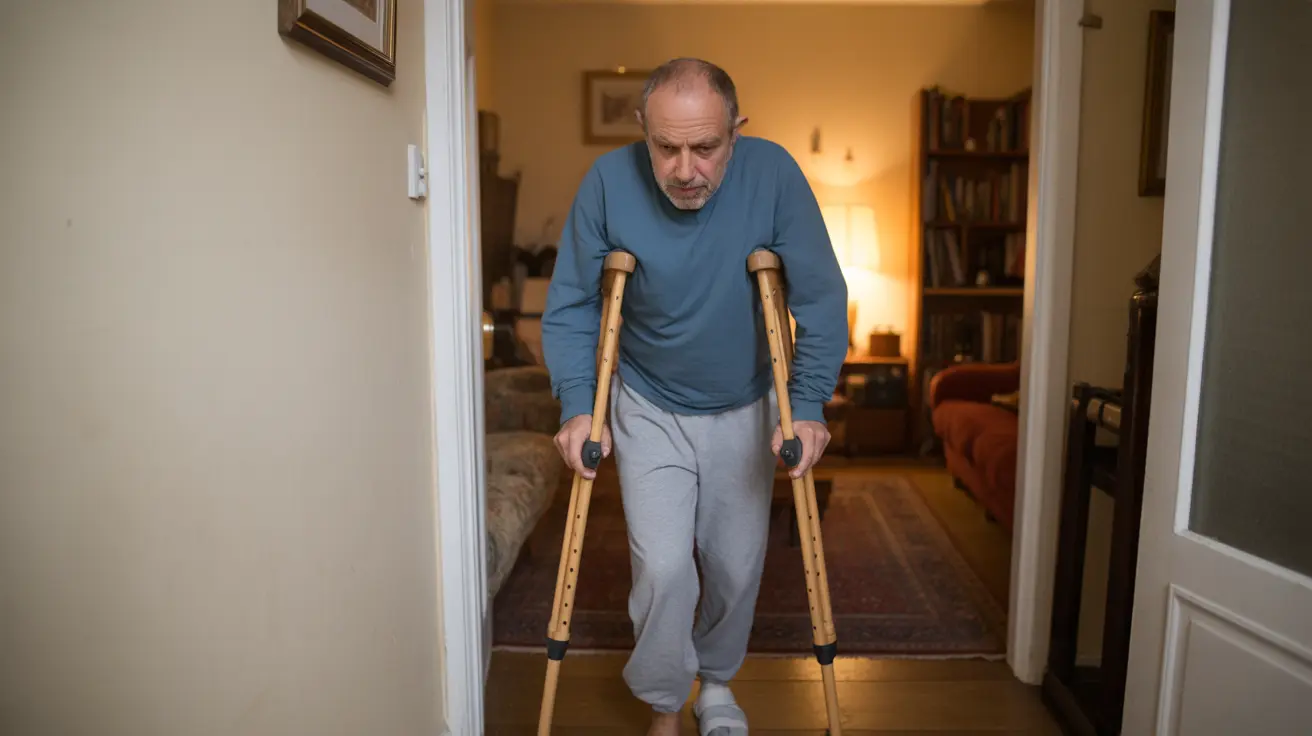Living with gout can be challenging, especially during painful flare-ups that affect mobility. When gout attacks the feet or ankles, using crutches can be an essential tool for managing pain and maintaining independence. This comprehensive guide explores how to effectively use crutches during gout flares and combine them with other pain management strategies.
Understanding Why Crutches Are Important for Gout Management
Gout flares cause intense joint pain and inflammation, making it difficult or impossible to bear weight on the affected area. Using crutches helps reduce pressure on painful joints, allowing them to heal while enabling you to maintain some mobility. This support is crucial for preventing further joint damage and managing daily activities during a flare-up.
Choosing the Right Mobility Aid for Gout
While crutches are a common choice for gout management, they're not the only option available. The best mobility aid depends on various factors, including:
- Location of gout pain
- Severity of symptoms
- Your overall strength and balance
- Duration of expected use
- Living environment and daily activities
When to Choose Crutches
Crutches are typically most appropriate when:
- The gout affects one foot or ankle
- You need to keep weight completely off the affected joint
- You have good upper body strength
- The flare-up is expected to be relatively short-term
Alternative Mobility Options
Sometimes other mobility aids might be more suitable:
- Canes: For mild symptoms or when partial weight-bearing is acceptable
- Knee scooters: For longer-term use or when upper body strength is limited
- Walkers: For those needing more stability or having balance concerns
Proper Crutch Usage Techniques
Using crutches correctly is essential for both safety and effectiveness during gout flares. Here are the key steps for proper crutch use:
Basic Positioning
Start by ensuring:
- Crutches are properly sized with about 2 inches between armpit and crutch top
- Elbows are slightly bent when holding the handgrips
- Weight is supported through your hands, not your armpits
- Crutch tips are placed about 6 inches from your feet
Walking Safely
Follow this sequence when walking:
- Move both crutches forward
- Swing your unaffected leg between the crutches
- Keep the affected foot off the ground
- Maintain good posture throughout movement
Combining Crutch Use with Other Pain Management Strategies
While crutches help with mobility, they work best as part of a comprehensive gout management plan that includes:
Footwear and Support
Consider using:
- Wide, supportive shoes with soft uppers
- Custom orthotic insoles for better weight distribution
- Open-toed shoes during severe swelling
- Protective padding around affected joints
Additional Pain Relief Methods
Complement crutch use with:
- Ice therapy for acute inflammation
- Prescribed medications as directed by your healthcare provider
- Elevation of the affected limb when resting
- Gentle range-of-motion exercises when appropriate
Frequently Asked Questions
How do crutches help relieve pain and improve mobility during a gout flare-up? Crutches help by taking weight off the affected joint, reducing pressure and pain while allowing the inflammation to subside. This weight relief enables you to move around while giving the joint time to heal.
When should I use crutches versus a cane or knee scooter for gout in my foot or ankle? Choose crutches when you need to completely avoid weight-bearing on the affected joint and have good upper body strength. Opt for a cane if you can tolerate some weight-bearing, or a knee scooter for longer-term use or if you have limited upper body strength.
What is the proper way to use crutches safely to avoid further injury when managing gout? Use crutches with proper sizing, maintain good posture, support weight through your hands rather than armpits, and follow correct walking techniques. Ensure crutch tips are positioned correctly and move in a controlled manner.
Can wearing special footwear or orthotic insoles reduce gout pain alongside using crutches? Yes, appropriate footwear and orthotic insoles can help reduce pain by providing better support and pressure distribution. Choose shoes with soft uppers and ample room for swelling, and consider custom orthotics for optimal support.
How can I stay active and manage gout symptoms while relying on crutches or other mobility aids? Focus on low-impact activities that don't stress the affected joint, maintain proper crutch technique, and incorporate rest periods. Follow your healthcare provider's recommendations for activity levels and combine mobility aids with other pain management strategies.




